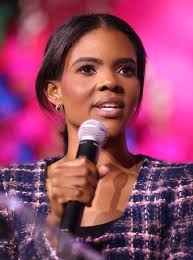
Introduction
Candace Owens has emerged as a significant figure in contemporary political discourse, serving as a voice for conservative values in the United States and beyond. Her rise has been notable, especially in an era where social media plays a crucial role in shaping public opinion. Owens, an author and commentator, has often been at the centre of heated debates, particularly on issues such as race, gender, and the political landscape. Understanding her influence is crucial in grasping the dynamics of today’s political environment.
Main Body
Born on April 29, 1989, in Stamford, Connecticut, Owens started her career in the marketing industry before gaining prominence as a political commentator. She first rose to fame with her YouTube channel and later became associated with the conservative movement, largely through her work with Turning Point USA, a nonprofit organization that advocates for conservative policies on college campuses.
Owens is best known for her strong opposition against the Black Lives Matter movement and her criticism of what she describes as victim mentality among African Americans. Her controversial views have garnered both significant support and criticism, making her a polarising figure in American politics. In 2020, she released her book, “Blackout: How Black America Can Make Its Second Escape from the Democrat Plantation,” which argues that the Democratic Party has failed African Americans.
In recent months, Owens has continued to capture headlines, particularly with her commentary surrounding COVID-19 policies and her staunch support for personal freedom. She has hosted various podcasts and has appeared on numerous mainstream media outlets, galvanising a specific audience that resonates with her viewpoints. Her influence is further amplified by her substantial following on social media, where she routinely engages with her supporters and critics alike.
In addition to her media presence, Owens has not shied away from political activism. She has actively participated in events aimed at encouraging young people to vote for conservative candidates, especially during election cycles. Her alignment with figures such as former President Donald Trump underscores her role in shaping the narrative around conservatism in the United States.
Conclusion
Candace Owens’ journey from a marketing professional to a prominent political commentator illustrates the ever-evolving nature of political discourse in the digital age. As she continues to influence public opinion, her impact on conservative thought and the broader implications for race relations in America cannot be understated. Looking ahead, it is likely that Owens will maintain her presence in media circles and political discussions, influencing a new generation of conservative thinkers. Her outspoken nature and ability to engage audiences suggest that she will remain a compelling figure in American politics for years to come.
You may also like

Understanding the Current Political Landscape in the UK

The UKIP Party: Recent Developments and Future Outlook

Boris Johnson: A Look at His Current Political Landscape
SEARCH
LAST NEWS
- Remembering Wendy Richard: The Promise to Co-Star Natalie Cassidy
- How Did Anglian Water Achieve an ‘Essentials’ Rating for Mental Health Accessibility?
- Shai Hope Leads West Indies in T20 World Cup Clash Against South Africa
- What We Know About Weston McKennie: Future at Juventus and Past at Leeds
- What We Know About the Upcoming Live Nation Antitrust Trial